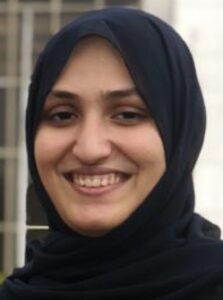What if I told you that there is a superpower that helps us making authentic choices, understanding people, and living a more meaningful life? Psychology names this superpower as wisdom.
Is being smart, a topper or reading a lot of books enough to define wisdom? The amazing fact is Psychology answers this question “No”. Always taking A’s or being perfect is not the true essence of wisdom. In psychology, wisdom means using both your head and heart to reach good judgments –for yourself and others. It involves deep critical thinking, kindness and understanding life’s ups and downs.
This writing dive into how psychology defines wisdom, why it matters and how we can help children and adults become wiser every day. “Finding the balance between what is good for you, for others and for the world is wisdom” – according to Robert Sternberg. Another expert, Paul Baltes, found wise people see problem from many angles. They accept life is complex, learn from their mistakes and help others with care. Wisdom is not about chronological age or how old someone is. It is about how much we reflect, learn, and think about everyone including ourselves.
Wisdom is about using your knowledge and life experiences in aversive conditions. I deeply want to share the best part that Wisdom is something we can learn and grow at any age. Psychology says wisdom is both inherited and learned. People may be born with a calm or thoughtful personality, which can help them become wise but it’s just the starting point. It means some part of wisdom is influenced by nature (genes), but a big part can be taught, practiced and grown at any age. Wisdom is not about chronological age or how old someone is. It is about how much we reflect, learn, and think about everyone including ourselves.
Researchers have done a lot of experiments. By understanding and applying the key concept of those experiments to practical life helps to develop wisdom. Those mind blowing experiments includes ;
Berlin wisdom project: The core concept of his research is that wisdom is the reflection of real life experiences. We can ask real-life, messy problems to identify a wise person. The wisest answer will come from those who have lived through challenges.
Self-distancing study: When people see their problem in the third person they give calmer and wiser advice. We can make somebody wise at solving his problem without his knowledge. We may ask him about the solution of the similar problem he is facing by relating the problem to somebody else. In this case, we will ask “what Amna should do?”
Wisdom-based counseling: Counseling is not always about healing. It is about growing. Counselors use wisdom therapy to help people grow from pain – not just get over it. Clients reflect on big questions like:
” What did this teach me?” “What did I value most in that situation?”, “How can I use this experiences as a strength?”
This reflection becomes the transformation. These wisdom focused tools help people learn to accept and handle hardships of life without losing hope. It helps them to make peace with past and grow into a self-actualized wise person.
Wisdom and Emotional Intelligence: Psychology says wisdom and emotional intelligence are like best friends. Emotional intelligence (EQ) means recognizing and maintaining your own emotions well. It helps to understand how others feel and handle relationships with care.
Research suggests people with strong emotional intelligent are more likely to be wise. Why this happens? Because they pause, listen, reflect and then act .This is the same what wise people do. We can teach kids or older to name their feelings, understand and talk about them. In this way they make better use of your strengths managing their emotions.
Presently kids are growing up at a fast pace. Wisdom is the need of this advancing society .We should help children grow wiser by letting them learn from their mistakes. Teach them empathy; make them run after excellence not the digital figures or scores. Help them in developing critical thinking by asking questions like” what do you think would happen if …?”Even a small daily moment can grow big life lessons.
“Don’t be shy to learn from someone younger or less experienced than you.”
One of the most beautiful perspectives Psychology teaches us is this “Wisdom is not about age – it’s about attitude.” One stereotyped approach of our society is thinking older means wiser, but it is not always true. It means a young can also be a wise person. He can say something deep wisely. A teenager might teach us what we have forgotten. A quiet student might have insights a teacher never considered. So here is a gentle reminder
“Don’t be shy to learn from someone younger or less experienced than you.” Being humble is real wisdom. Wise man listens and learns from anyone regardless of chronological age concept. We should keep in mind that we all carry pieces of wisdom. When we share and listen with open hearts, we help each other grow. If you find something new in less experienced or in young members do not hesitate to reach out to learn. Appreciate them for their uniqueness and assimilates the best to your knowledge. It will bring closeness and contentment in social aspects.
Appreciating the need for growth, there is a gentle message from one human to another. Please let me allow sharing something very personal: Wisdom is not about being right all the time. It is about being willing to explore. Optimal use of what you have learned how you feel what others feel, reaching good judgments for one and others. It is in understanding the liberal approach to view someone’s thought as a new dimension of your thinking pattern.
Wisdom lies in forgiving, in asking help when needed, in understanding it’s okay to fail and make mistakes. If we learn that life contains a diversity of experiences and we can encounter them in a calm way we are the real wise people. We all need to know all the coping strategies lay within us .We just need to recognize them. The world will become a better place to live in for everyone.
So, let’s raise wiser kids. Let’s become wiser adults. And let’s build a wiser society and global community for delivery without persecution in the larger interest of humanity.
—
The writer is an undergraduate student in Psychology and can be reached at shanzashadab@yahoo.com




[…] The writer is an undergraduate student in Psychology and can be reached at shanzashadab@yahoo.com […]